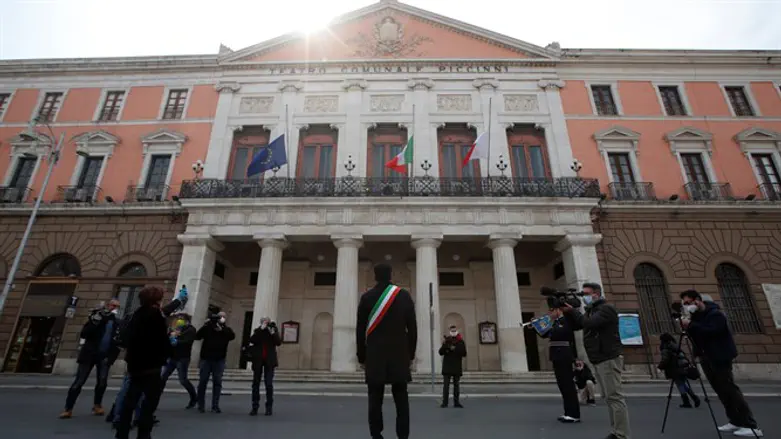
To this double shock Michel De Jaeghere, director of the Figaro Histoire, dedicated the six hundred pages of his work “Les derniers jours ”- The last days. “Families were fragile and not very fruitful. Concubinage remained the norm, divorce was frequent. The loss of the pietas resulted in a depopulation that would have had a great weight on the destinies of the Roman world. Lucan had described, under Nero, the desolation of an Italy in which 'few inhabitants wander the deserted streets of ancient cities'”.
Fast forward. Italy’s birth rate is expected to diminish further as fear and uncertainty brought on by the pandemic exacerbate its fertility crisis. Italy registered 420,000 births in 2019 – the lowest rate since the country’s unification in 1861 – while deaths reached 647,000. The birth rate could fall below 400,000 this year, while Covid’s fatalities will drive deaths beyond 700,000. Gian Carlo Blangiardo, the president of Italy’s statystics institute, said: “This is a worrying level because the last time something like this happened was in 1944 when we were in the Second World War”.
Is the fate of Roman Empire science fiction for current Europeans? Or is it coming true? In July, The Lancet magazine released mind-boggling data for Italy: its population will halve in 2100, to only 30 million inhabitants (same fate as Spain).
“For nearly three centuries, the Roman world was the subject of a series of violent raids by the Germanic tribes that destabilized it and ended up gaining the upper hand in the West,” De Jaeghere told me last week. “It was too sparsely populated to guarantee the subsistence and defense of the borders. Its elites, who in the glorious days of the Republic had led it personally, did not mobilize men and wealth to defend it, preferring more often than not to deal with the occupiers to save what was essential for them: possessions and positions.”
The current European situation is quite different. “Our countries have been at peace for 75 years, if we exclude the Yugoslav shocks. The population of the 28 states of the European Union is estimated at 446 million inhabitants. France alone is like the Roman Empire in its splendor. We are not subject to armed pillage or military conquest."
"But the paradox is that we invest in the promotion of a policy that leads us, insensibly, to our own expropriation. Our demographic wealth is just a lure. It hides aging. And even if Europe is not conquered militarily, it is still a victim, due to extra-European immigration, of something that leaves us disarmed and powerless. The Baby Boom generation, in France in May 1968, is convinced that one must 'enjoy without obstacles', challenge authority and morals, in unprecedented happiness. Why have children? This generation has invented a world that believes itself to be the best that history has ever known but, at the same time, has planned its own demise.”
First it was Montaigne, who in the cold winter of 1580 in Rome looked around and reflected on the "infinite grandeur" suffocated under those ruins. Then Goethe, who paused in front of the ruins of the Roman Forum, the empty eye sockets of the Colosseum, the immensity of the Baths of Caracalla.
Two centuries later, faced with that same indestructible majesty, it was Edward Gibbon who questioned the reasons that led to the end of the greatest empire in history, who described its rapid decline and agony.
Another two centuries pass and an English historian, Michael Grant, identified the similarities between Rome and the West: the rich class, as then, enormously rich, which detaches itself from the social fabric; the bourgeoisie that loses all capacity for resistance; the bureaucracy that expands uncontrollably; the political class that lives isolated from the feelings of the masses, the hordes of barbarians, the ghosts of the peripheral provinces, the villas of selfish senators, the roar of religious and racial clashes.
All pass on warnings, constantly aiming at the present.
Giulio Meotti is, an Italian journalist with Il Foglio, writes a twice-weekly column for Arutz Sheva. He is the author, in English, of the book "A New Shoah", that researched the personal stories of Israel's terror victims, published by Encounter and of "J'Accuse: the Vatican Against Israel" published by Mantua Books, in addition to books in Italian. His writing has appeared in publications, such as the Wall Street Journal, Gatestone, Frontpage and Commentary.